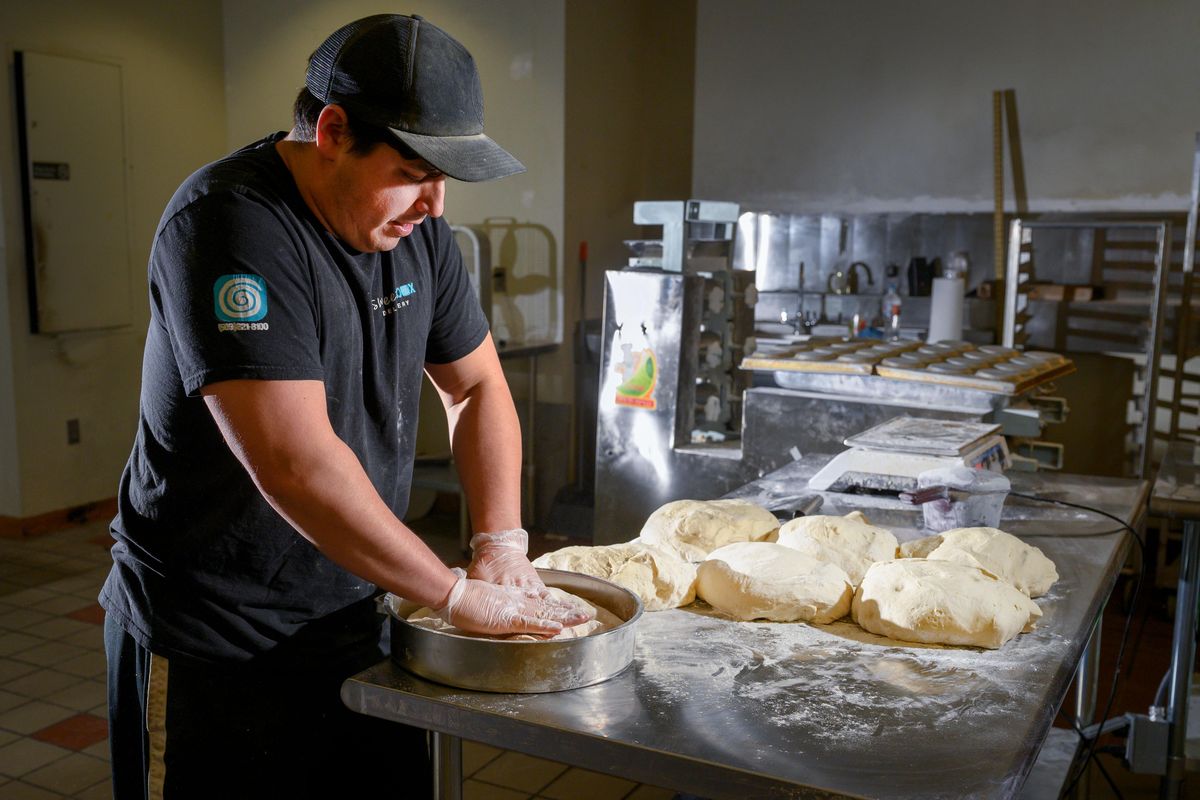Culinary incubator: River City Kitchen caters to food entrepreneurs

In a corner of the Spokane Intermodal Center, a new commercial kitchen occupies a space that’s designed for culinary creativity.
River City Kitchen, on the second level, opened a few weeks ago. Owner Clay Cerna said he hopes it will become an incubator for new food and beverage products for the region’s restaurants, food trucks, stores and farmers markets.
“Food companies need an affordable option to test their product, to build their brand and refine, without taking on too much debt and liability,” Cerna said. “Nowadays, the food regulation is such that they want people producing in commercial kitchens because they’re more regulated.”
Cerna, 34, will rent space and use the remodeled former restaurant for another company he owns, Sweetbox Delivery. His 5-year-old company makes crafted bagels and also provides a delivery service to customers of other bakeries such as Just American Desserts and Cyrus O’Leary’s Pies.
In developing a food product, people typically work with the Washington Department of Agriculture, which licenses food processors, or the Spokane Regional Health District, which regulates restaurants and food operations where the public enters.
“Our kitchen has to be up to both standards,” he added. “We cleaned this space up because it was empty for two years. It’s got all new electrical, plumbing, a new gas line, and we tore out all the old equipment and put in all new.”
Once a depot for Northern Pacific Railroad, the Spokane Intermodal Center today serves as the Amtrak Empire Builder station, as well as the Greyhound and Trailway bus station. The building, at 221 W. First St., was remodeled in 1994 with a few additions to the original structure.
Cerna said the space for the new kitchen once served as a cafeteria for train depot passengers. It also was a former teriyaki restaurant, he said.
River City Kitchen rates will vary depending on needs, Cerna said, but they will range between $10 and $20 an hour. Food storage would be charged separately if needed, about $200 to $500 a month depending on the amount of space.
All the plumbing is commercial grade, as are various machinery used for cooking equipment, he said. River City Kitchen has a triple sink, sterile work spaces, gas stack ovens, six-burner gas grill, fire suppression and a 40-gallon tilt skillet for jams, sauces or salsas.
The 2,766-square-foot space also has various mixers from 30- to 80-quart sizes, several freezers, a walk-in cooler and sheet rollers for dough. The site has a roll-up door for access and its own parking.
“It was built for high production,” he said. “The main purpose is for this to be a commercial kitchen for other food companies. I’ve been involved with the startup community for the past seven years, so I’ve had a lot of exposure to people who are starting a business.
“The biggest thing people need starting out is they need room to practice; they need room to try. It’s all about surviving your mistakes until you get it right. Especially with food, people will tell you if they like it or not.”
When he started out, Cerna thought his ideas for cinnamon rolls would rise to the top of his food company. After trial and error, the best results came from making and selling stuffed bagels.
“I thought I was going to change the world with cinnamon rolls,” he said. “We had an apple-filled cinnamon roll and mini cinnamon rolls, but they didn’t sell like the stuffed bagels have sold. Turns out, if you put cream cheese inside the bagel, people really like them.”
He said some food truck operators use commercial food kitchens to have a larger space for at least partial menu preparation to serve meals later from their vehicles.
Other typical food company owners rent commercial kitchen space by the hour.
“We’re trying to build the kitchen out to where multiple users can have space to work, and we’ll have different rates for storage and for the co-working (office) space to do paperwork.”
Sweetbox Delivery previously operated out of Nectar Catering in downtown Spokane. When Cerna started, he did initial work at Kitchen Spokane, another commercial kitchen operator.
“We started small, and that allowed us to grow without a lot of risks before we knew what we were doing,” he said. “That’s one thing about food companies, especially, that where your business is on day one and where it is two years down the road is typically vastly different.”
“You learn from customers to refine your product.”